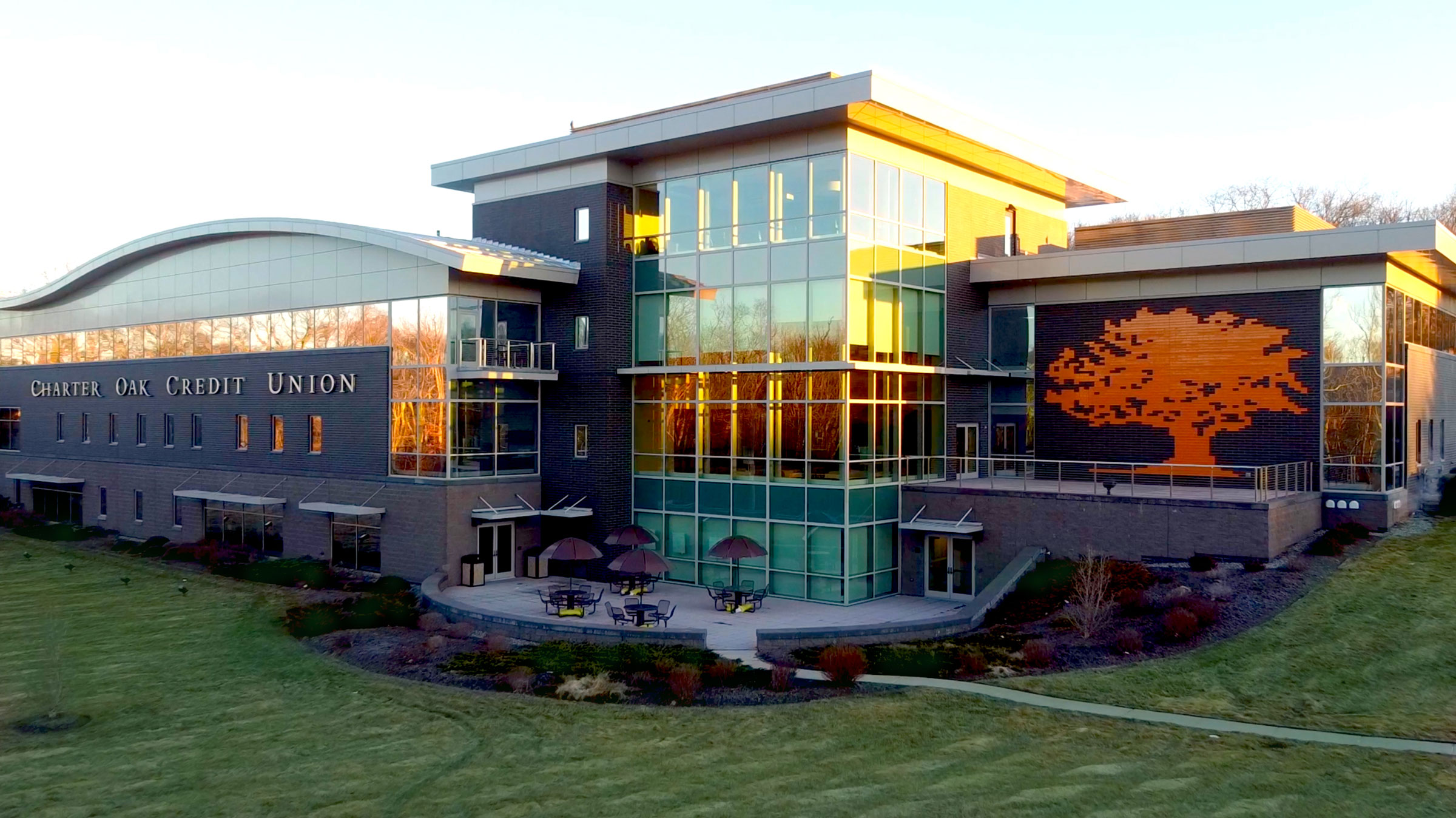Credit Unions vs. Banks: What’s the Difference?
When it’s time to choose a financial institution, you have a lot of options and becoming a member of your local credit union is one of them. Here’s what you need to know about the differences between a bank and a credit union.
Credit Unions vs. Banks: An Overview
Credit unions offer a number of important advantages for members. Higher rates on savings, lower rates and fees on loans, and smaller fees for your everyday accounts are just a few of the financial benefits of choosing a credit union.
Since credit unions aren’t focused on creating profits, they can concentrate on supporting their members by keeping fees low. Credit unions often provide access to important financial tools and education for members as well.
For-Profit vs. Not-for-Profit
A credit union is a not-for-profit organization designed to serve the financial needs of members. With a structure that makes members the institution’s owners, credit unions are typically able to provide members with lower-rate auto, home, and personal loans than big banks. Profits made by a credit union go back to members who enjoy higher rates on savings accounts, reduced fees and lower interest on loans.1
Banks are for-profit entities often owned by investors. Bank customers can use the services offered by the bank, but they don’t have a say in how the institution is run. A bank’s management team makes day-to-day decisions that are in the best interests of the bank, not the bank’s customers.
Why Choose a Bank?
- Banks may have more physical branches located across the country. This could be important if you prefer to handle your finances in-person and you travel a lot.
- Banks may have more ATMs including possible ATM access if you travel internationally. This could reduce the fees you pay to access cash via an ATM machine.2
(Credit unions that participate in a shared branch network such as Charter Oak allow you to do your banking at over 5,000 participating credit union branches nationwide, as well as the use of over 30,000 ATMs coast to coast.)
Why Choose a Credit Union?
- As a member-owner, you elect the board of directors.
- Credit unions often offer free financial education opportunities to help support their members’ financial goals.
- It may be easier to get a loan through a credit union than with a bank, since many credit unions consider applicants on a case-by-case basis, as opposed to only providing loans to those who meet strict lending requirements.
- Credit unions don’t have to make money for shareholders, so they can pay higher rates on certificates and savings accounts.
- If you have questions or need to speak with someone in person, it’s easy to get in touch with a credit union employee.
Credit Union Membership Eligibility
Credit unions must follow federal rules and regulations when they accept new members and open accounts. You may be required to provide the following to initiate a membership:
- Driver’s license or another form of government-issued ID
- Social Security card
Charter Oak accepts member applications from people living, working, worshipping, learning, or volunteering in New London and Windham county, as well as their businesses, legal entities, immediate family, and household members.
Charter Oak Products
- Personal banking: Checking and savings account options and eBanking services
- Business banking: Business checking and savings accounts, business loans, 24/7 payment processing and employer-sponsored HSAs
- Loans: Mortgage and home equity loans, unsecured personal loans, auto loans, student loans, and Charter Oak Visa® credit cards
- Retirement and investment services: Provided by Charter Oak Retirement and Investment Services
- Health savings accounts (HSA): Members with a high deductible health plan (HDHP) may be eligible to get the tax advantages associated with owning an HSA
- Insurance: Auto, health, life, property and accidental death insurance provided by TruStage
- Co-Op shared branching: Charter Oak members can make withdrawals, deposits and loan transactions in real time at thousands of participating locations across the country.
1 MyCreditUnion.gov, 2021, What is a Credit Union?, Accessed September 22, 2021, [mycreditunion.gov]
2 Amy Fontinelle, 2021, Reasons Why Big Banks May Be a Wise Option, Accessed September 22, 2021, [Investopedia.com]
Which Is Best for Investing?
Many credit unions offer options for retirement investing, like Roth and Traditional IRAs. They may offer lower fees and higher interest rates on other investment types like certificates and Health Savings Accounts (HSAs).
Certificates typically pay a lower rate than other types of investments, but they are a good option for people who don’t need access to their money for a predetermined amount of time and have zero tolerance for risk. You can’t lose money when you invest in a certificate. There’s a guaranteed rate of return, and interest rates are higher than with a savings or money market account. It makes sense to shop around for the best certificate rates, and credit unions tend to offer higher interest on this type of investment.3
If you have a High Deductible Health Plan (HDHP), you can set aside pre-tax money in an HSA. You can then use money in your HSA to pay for your deductible, co-pays and co-insurance. Unlike flexible spending accounts that may be available through your employer, your HSA contributions roll over from year to year. There’s no income limit to prevent you from contributing to an HSA and interest gained on the account grows tax-free as well.4 Credit unions typically pay higher rates across all types of deposit accounts, including HSAs.
Many credit unions offer access to Traditional and Roth IRAs. Even if you already contribute to an employer-sponsored 401(k) account, you can open a Traditional IRA or Roth IRA to help boost your retirement savings. For additional retirement and investment information, please visit our Charter Oak Retirement and Investment Services page on CharterOak.org.
3 Jason Fernando, 2021, Certificate of Deposit (CD), Accessed September 22, 2021, [Investopedia.com]
4 Jean Folger, 2021, Health Savings Accounts: Advantages and Disadvantages, Accessed September 22, 2021, [Investopedia.com]
Making the Right Choice for Your Money
If you want to keep all of your accounts in one place, your local credit union may be able to help. And since credit unions often offer free financial education, you may find that you have more options than you thought when it comes to investing.
The Advantages of Credit Unions Over Banks
Once you become a member of a credit union, you have access to many associated benefits.
Lower fees: Consumers paid banks $12.4 billion in overdraft fees in 2020. Credit unions typically charge smaller non-sufficient fund (NSF) fees when an account goes into the negative than banks.5
Higher interest on savings accounts and certificates: During the first quarter of 2021, banks paid an average of 0.63% interest on a 5-year CD, while credit unions paid an average of 0.76%. Credit unions paid 0.14% interest on money market savings accounts during the same time period, while banks paid just 0.09% interest.6
Better loan terms: Banks charge an average of 5.10% on a 48-month used car loan, while credit unions charge 3.02% on the same type of loan. While banks charge an average of 12.55% interest on credit card purchases, credit unions charge 10.97% interest.7
Easier mortgage qualification: Since credit unions exist to serve their members, it may be easier (and faster) to get a mortgage or home equity loan through a credit union than it would be with a bank. Of course, there are still a number of important qualification rules. A credit union may have stronger ties to the community, and they may have access to valuable homebuyers’ assistance programs specific to your local area. They may also charge fewer fees than banks.
Investment in the community: Credit unions create partnerships with local organizations to improve the lives of their members. The credit union exists to serve members, “not for profit, not for charity, but for service.”8
Democratically controlled: Credit unions are the only financial institutions in the United States controlled by unpaid members serving on a board of directors. The volunteer board oversees operations and makes decisions in the best interests of credit union members.9
Credit unions are owned and operated by members. These cooperative financial institutions offer lower rates on loans, higher rates on deposit accounts, and fewer fees, while democratizing access to crucial financial services.
Banking with a large financial entity has some advantages. However, credit unions provide clear benefits to community members who want access to the same service offered by big banks at a lower cost.
5 Ben Gran, 2021, Is 2021 The Beginning Of The End For Overdraft Fees?, Accessed September 22, 2021, [Forbes.com]
6 National Credit Union Administration, Credit Union and Bank Rates 2021 Q1, Accessed September 22, 2021, [NCUA.gov]
7 National Credit Union Administration, Credit Union and Bank Rates 2021 Q1, Accessed September 22, 2021, [NCUA.gov]
8 Michigan Credit Union League & Affiliates, 2021, Industry Overview & 2021 Outlook, Accessed September 22, 2021, [house.mi.gov]
9 National Credit Union Administration, 2021, Duties of Federal Credit Union Boards of Directors, Accessed September 22, 2021, [NCUA.gov]
Please note: This information is designed to offer a general understanding of common financial terms and practices and should not be considered financial advice from Charter Oak Federal Credit Union. Every individual has different financial needs and goals, which should be discussed with a financial professional.




